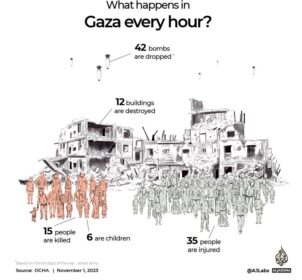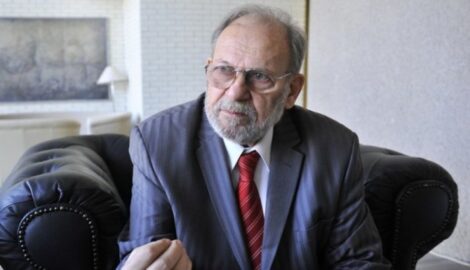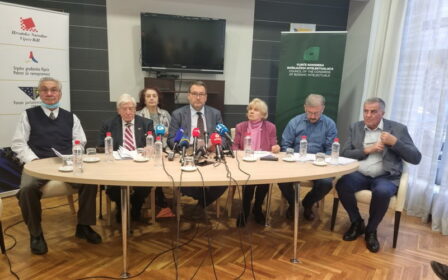A Balkan dysfunction

WHEN Croatia joins the European Union in July Bosnians will no longer be able to export eggs, meat and dairy products to their richer neighbour. The reason is that Bosnia’s politicians cannot agree on who should certify whether their producers meet the EU’s sanitary and veterinary rules. Bosnians knew they had to prepare for this moment. But Muslim Bosniaks want the job done by a central body, whereas Serbs prefer agencies in the two autonomous parts of Bosnia.
The EU says it does not matter who does the certifying, although it wants one central body to talk to. Peter Sorensen, the EU’s special representative, complains that “the producers seem to think it is the EU’s fault.” When he explained the problem to a group of farmers they protested that their politicians would never agree, so he should sort it out instead.
The quarrel about the certification of farm produce is typical of Bosnia’s problems. Under the terms of the peace deal that ended Bosnia’s war in 1995 many elected posts are specifically reserved for Serbs, Bosniaks and Croats. This is like having a law that only ethnic English, Scots, Welsh or Irish can be elected to senior positions in Britain.
In 2009 the European Court of Human Rights (ECHR) ruled that this should change. After four failed efforts to find a deal between Bosnia’s ethnic groups that enables the state to function, a new push is under way. The thinking is that, unless Bosnia’s leaders move forward within a few months, they risk losing two more years to elections due in 2014. The trouble is that, although Serbs and Bosniaks may agree to reform, Bosnia’s Croats, the least numerous of the three groups, fret that a new system would leave them even more marginalised.
The delay in implementing the ECHR decision means that Bosnia’s EU accession has also stalled. Only if the deadlock is broken can Bosnia formally apply to join the EU. It needs to move soon: Montenegro is already negotiating membership and Serbia hopes to get approval for the opening of accession talks in June.
As the difficulty over farm produce shows, failure has consequences. Political gridlock has meant failing public services. Alida Vracic, of Populari, a think-tank, says she is scared to take her baby to the park, because it is dirty and full of stray dogs. As Bosnia’s leaders quarrel over how to change the constitution, they neglect the bread-and-butter policies, such as health care and education, that affect how people live. “This is a failing state,” says Srecko Latal, another analyst. “Growing numbers of our institutions just don’t work.”
Discontent is growing across the region, says Goran Svilanovic, head of the Balkan regional co-operation organisation. Bosnia’s leaders should note that “this year is the year to do the deals.” If they do not, voters will be unforgiving. As Fletcher Burton, who heads the Organisation for Security and Co-operation in Europe’s mission in Bosnia, points out, if the chance is lost, the country will lag ever further behind its neighbours.
Source: economist.com



